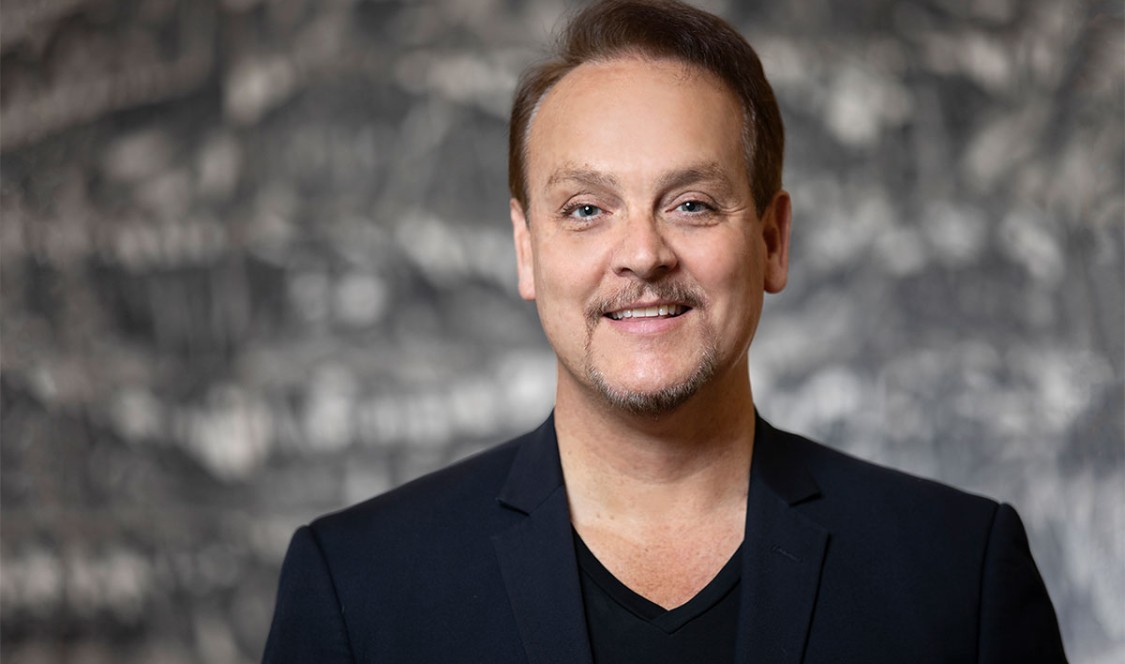Gastón Espinosa’s course titles include: “Mystics, Prophets and Social Change,” “Religion and Film,” “Religion, Politics and Global Violence,” and “Religion, Race and the Civil Rights Movement.” They don’t fit into simple categories; neither do his students.
- Gastón Espinosa, Arthur V. Stoughton Professor of Religious Studies
- Expertise: American religious history; U.S. Latino religions; religion, race, and politics; religion and film
- At CMC since: 2004
- Hometown: Dana Point, Calif.
- Hobbies: Coaching, traveling, reading, salsa and ballroom dancing
“My classes are like the United Nations. The students are so religiously and racially and ethnically diverse, I love it,” he said.
What he loves most, though, is that “CMC students are fully engaged. They bring their own perspectives. They’re very bright, they’re gifted, they’re energetic, they’re curious, they’re open-minded. They really do want to understand the world better and make a difference in it.”
Espinosa’s current book-in-progress, on Latino religion and politics, examines “how Latinos have engaged in politics in America in light of their religious identity, social values, and political attitudes,” he said. Like his courses and students, the book will explore the rich complexity beneath the surface of racial, political, and religious identities. “Most (Latinos) are Catholic, but a growing number are Protestant, and most of those Protestants are evangelical. But like their African American counterparts, they’re mostly Democrats, though George W. Bush won over almost half in 2004.”
Espinosa is a scholar of American religious history, and has authored or co-authored eight previous books published by Harvard, Oxford, Columbia, and Duke presses. Some key findings from his work:
Immigrants and evangelicals
“Today, we have over 30 million immigrants in the United States. Half of them are Latino, and half of those come from Mexico. The vast majority of immigrants are disproportionately religious per the U.S. white population. The growth of racial-ethnic minorities may simultaneously de-Europeanize Christianity and secularism, and contribute to the growth of populist racial-ethnic Protestant Evangelicals and other world religions. This would create a very racial-ethnically dynamic religious marketplace.
“You do see the decline of what I would call denominational religion in favor of evangelical churches without a denominational affiliation. One of the reasons why is that many of those evangelical churches have drug rehab homes. Many also sponsor AA meetings at church. They have homes for unwed mothers. They have a lot of social justice ministries, but they don’t call them that. Many immigrants, young people, single mothers, African Americans, Latinos, Asian Americans, and Native Americans are gravitating toward more experiential religion because it is trying to meet the needs of the whole person—while at the same time, it also talks about how God loves you, God can help you overcome your problems, and you can have a fresh start in life. That kind of language is very attractive to a person who has had a tough life.”
Religion and social justice in U.S. history
“During the American Revolution, there are stories of leaders like Lutheran minister Peter Muhlenberg, who not only led troops from his Pennsylvania church into the Continental Army, but went on to retire as a Major General before serving in both the House and the Senate. Many of the Evangelical, Catholic, and Jewish congregations sided with the revolutionary cause, something George Washington praises in his 13 letters to the different religious denominations that sent troop detachments to serve in the Army. The opposite happened in France: the Catholic Church decided to ally with the monarchy. So, the church in France has often been seen as fighting against progressive causes, until more recently. Whereas in colonial America, Evangelical, Catholic, and Jewish congregations—and leaders like John Witherspoon—joined forces with people like Jefferson and Madison, who were coming at things from a more Enlightenment point of view.
“That’s one of the reasons why in America there’s simply not that kind of hostility toward religion that you have today in France and western Europe. It’s been on the side of a lot of progressive social causes throughout history, whether it’s revolution, abolitionism, or the civil rights movement. Throughout our history, there have been men and women from different religions who harnessed the power of religion to bring about positive social change. I think that’s why in America we have such relatively high levels of religious identity.”
Why students should study religion in college
“Students should be open to exploring religion because it interacts with all facets of life, and it’s really hard to separate religious influences and motivations from others. A lot of people’s decision-making processes are shaped by religious belief because it's part of their identity.
“Individuals like Marx and Mao created placeholder ideologies that functioned like religion, with their own sacred texts, like Mao’s Little Red Book. In addition, many ‘social radicals’—individuals motivated by a worldview that sought to promote justice, equity, and egalitarian societies—have had spiritual or mystical experiences that profoundly influenced their thinking. People like Gandhi, Martin Luther King Jr., Malcolm X, César Chávez—all of them drew on religious principles and notions of justice and of peace and community to transform society.”
—Samantha Bonar

